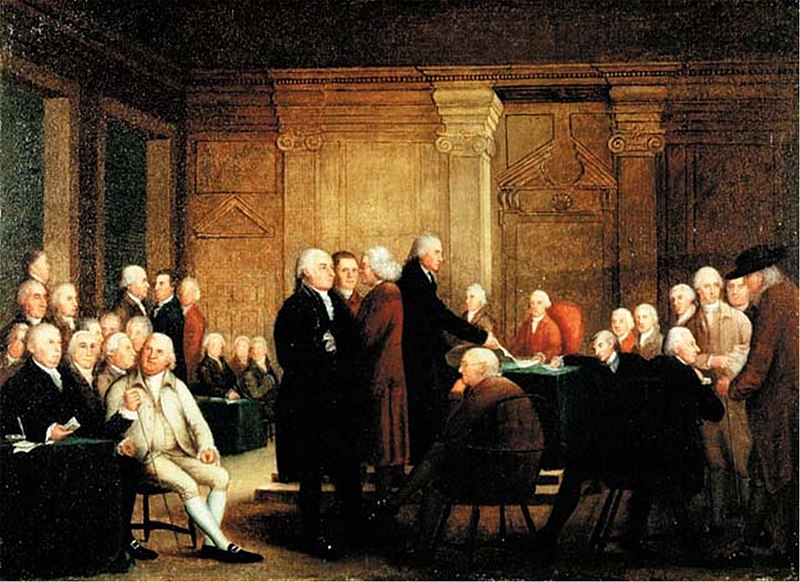When I studied the War of Independence
in grade school, I had some questions for my teachers. This wasn’t unusual. On
this particular subject, my question was, “When the colonists were fighting the
British army, where did they get the muskets and the gunpowder and the cannon
balls and the cannons from?
My reasoning was as
follows – the colonies were British. They traded mostly with the British, and certainly
British merchants would not sell us any of these things. Other countries weren’t
allowed to sell them to us. And we were not yet able to make them for
ourselves. So, where did they come from?

My poor teachers
struggled. People on the frontier had their own long rifles, and probably held
some powder, they offered. Local militias started out with supplies. And,
perhaps, more had been captured from conquered British forts and soldiers?
This seemed like a long
stretch to me. Our history book pointed out that many Colonial soldiers did not
come from the frontier, but from Eastern cities, where people were not as
likely to own guns. I observed that the book also said that we didn’t capture British
forts for years. And not one of these theories explained how the Colonial Army
ever got its hands on any cannons.
My poor teachers. They
tried. But I was too much for them. Throughout my school career, and for many
years afterward, my questions remained unanswered. Finally, however, I have learned
the answer.

It was pirates.
Specifically pirates in the Caribbean.
As readers of this blog
already know, pirates were in the habit of taking anything they could get away
with, and selling it anyone who would pay, so they could get started drinking
as soon as possible.
As soon as demand in the
American colonies rose, profit-loving pirates set out to fill an obvious and
profitable need. The British Crown regularly shipped supplies to its Caribbean
colonies and amongst the many islands robbers found opportunities to capture
British military supplies and send them to the American rebellion. Not only
shot, muskets and powder made their way north in pirate-owned ships, but also
rope, canvas, wool for uniforms, and many other goods.

Cannons at the time were
simple instruments. Their use on land or sea was determined by the wooden carriage
that supported the gun. It was a simple matter for the pirates to steal guns
off navy vessels and armed merchants and re-purposed them for use on battle
fields.
And how did the pirates
learn of the colonies’ needs? How did they transfer the goods to the American
military? Many prominent Americans had ties to pirates and smugglers. John
Hancock had been called “The Prince of Smugglers” by his contemporaries, having
made a great deal of money in that trade. New York had long been a known pirate
haven, as had Charleston. Many, many of the most prominent families had ties to
pirates or smugglers.
 |
| John Hancock, Founding Father and Smuggler |
The American Revolution
provided something the pirates had never known before: A buyer, or group of
buyers, who were willing to pay market value for stolen goods. Most buyers were
cheap – after all, if they were caught dealing with pirates, they might get
into a great deal of trouble. The leaders of the American Revolution were already
guilty of high treason. They desperately needed munitions. Prices for pirated
goods were high.
Benjamin Franklin, while
serving as ambassador to France, also contributed to pirate adventures in the
New World. In fact, Franklin created many pirates himself.
 |
| Benjamin Franklin |
One of the ways a nation
created a navy was to commission privateers. These licenses permitted merchant
ships to arm themselves and fight against the merchant ships of an enemy
nation. This was a money-maker for the nation, which sold the licenses and took
part of the captured goods. The licenses enriched merchants successfully captured
enemy ships.
Privateers had been
licensed by European nations for hundreds of years. If the new nation of the
United States wanted to join the society of established nations, writing out
privateering licenses and selling them to those who wanted to make war on
England would have been the most logical step for the Continental Congress.

But, for some reason,
Congress did not issue the licenses. Franklin, working as ambassador in France,
was besieged by prospective privateers. But he had no licenses to give them.
Finally, being a revolutionary, Franklin took matters into his own hands and began
handing out licenses.
In spirit, Franklin was
correct. But by the letter of the law, he was handing out useless scraps of
paper. An ambassador did not have the authority to authorize privateers. This
required the authority of a ruling body, be it a king or a congress. Franklin
did not have it.
Yet the French captains
who took these licenses used them as an excuse to attack British merchant
ships. These attacks were illegal. The men using them were pirates, and they
had been put up to it by Franklin. The money from the licenses fueled the
revolution, and the “privateers” provided much needed goods – tea, china,
furniture – to the American people. They also helped stir up support for the
Americans’ cause.
So that’s how pirates
helped the American colonies to become the United States.
what are your sources?
ReplyDelete
ReplyDeleteThis post is very beautiful
ReplyDeleteBut wanna say that this really is quite helpful , Thanks for taking your time to write this.